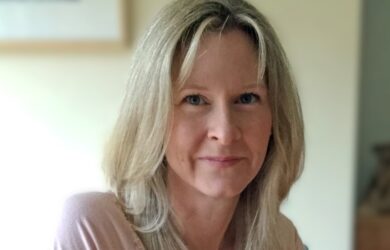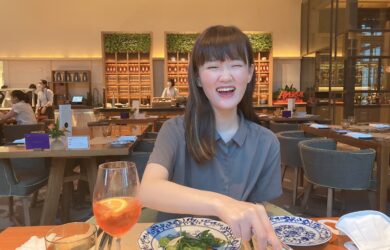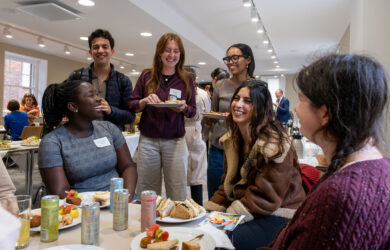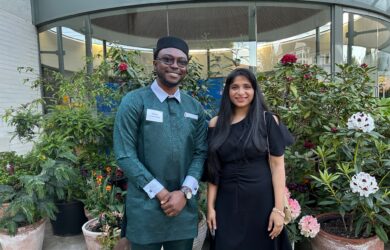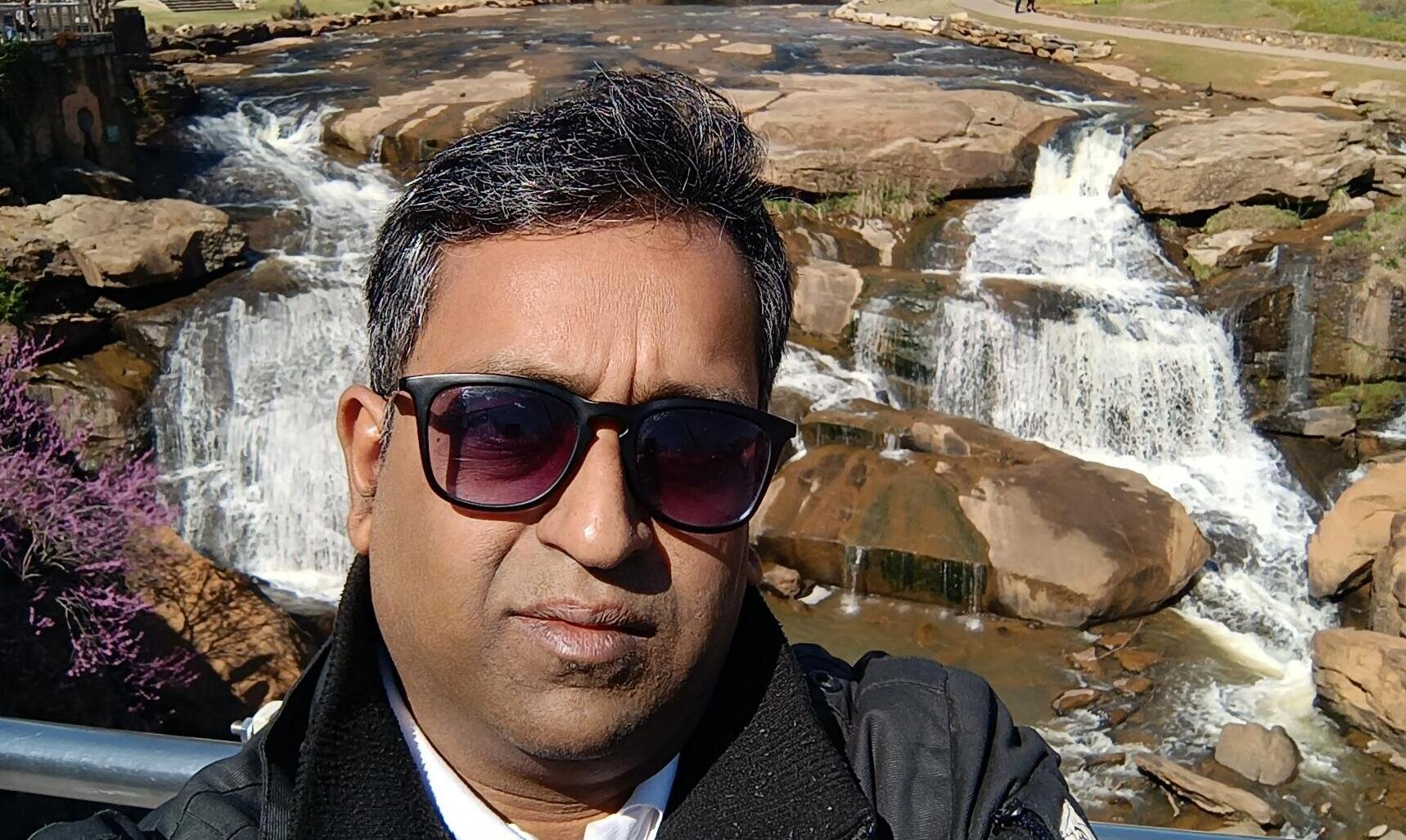
Pradipta Biswas talks about how his research on digital accessibility led to work on India's space programme.
The restrictions I faced as a child due to my myopia created a force in me to overcome barriers for myself and others so that physical impairments shouldn’t stop people from achieving their dreams.
Pradipta Biswas
Pradipta Biswas was very short-sighted as a young child and that meant his ability to travel around or play outdoors was heavily restricted. That early experience, he says, “created a force in me to overcome barriers for myself and others so that physical impairments shouldn’t stop people from achieving their dreams”.
It has driven his research into digital accessibility and that research has over the years broadened into a range of different areas, from measuring energy efficient buildings to working on India’s maiden human space flight programme.
Early years
Pradipta [2006] was born and grew up in Kolkata. His father was a civil servant working on the control of pharmaceutical drugs and his mother was a homemaker. His parents helped him with his studies and he says he was a good all-round student. However, just as he was finishing secondary school Pradipta lost his grandmother and one of his favourite uncles and this affected his grades.
He went to the University of Kalyani, a nearby private university where he studied information technology. His grades improved over the course of the degree which gave him more choices over where to do his master’s and he chose the Indian Institute of Technology, Kharagpur. That provided him with a good training in developing systems from project management to implementation. By the time he finished he was determined to continue his studies at PhD level. He was offered a PhD at the IIT, but decided he wanted to study abroad and applied to eight universities. Once he was awarded the Gates Cambridge Scholarship, which his supervisor Professor Peter Robinson recommended he apply for, it was an easy decision to take it up.
Cambridge
Pradipta’s PhD in Computer Science at the Rainbow Group in the University of Cambridge’s Computer Laboratory was on developing inclusive user models. He says: “Assistive technology was generally short term at that point and not scalable. Developers didn’t really understand accessibility problems.” He worked on a tool which can help them see through the eyes of a visually impaired system. He also collaborated with the Royal National Institute for the Blind, Action for Hearing Loss and other experts, including psychiatrists and hearing impairment specialist Brian Moore, Emeritus Professor of Auditory Perception at Cambridge, to create inclusive digital products.
Pradipta did his viva in 2010 and stayed on to do post-doctoral research at the Engineering Design Centre on an EU-funded programme to turn what he had learned from his PhD into a digital tv interface for elderly and disabled people. He also worked on a British/India ICT programme for the telecommunications industry. In 2014, after winning a Wolfson College Fellowship in 2013, he was promoted to senior research associate. The Fellowship had helped him buy equipment to build his own small laboratory. In addition to becoming a member of the fellowship committee to choose incoming fellows, Pradipta played cricket for his first Cambridge College – Trinity – and also took part in Gates Cambridge events.
Other extracurricular activities included shooting and, despite his myopia, Pradipta was part of the winning team of Varsity 2010 rifle shooting match and won medals at Imperial shooting meetings from 2013 to 2017.
Throughout his time at Cambridge, Pradipta won numerous awards and grants. His research ranged from exploring visual and auditory perception, rapid aiming movement and problem-solving strategies in the context of human machine interaction to working on real time sensor data fusion from different infrared and gyroscopic sensors. He also invented new algorithms, for instance, for use in eye gaze technology. Among the technology he has patented is an eye gaze and gesture controlled interactive Head Up Display.
Return to India
Pradipta was, however, keen to take what he had learned back to India. After his son was born in 2015, it seemed a good opportunity to return. Pradipta took up a post at the Department of Design and Manufacturing at the Indian Institute of Science (IISc) in Bangalore. The institute was established in 1909 with active support from industrialist Jamsetji Tata and is ranked among the most prestigious academic institutions in India, having the highest citation-per-faculty among all the universities in the world. He has been able to extend some of the work he did in the UK, for instance, he had worked with British Aerospace’s laboratory on eye tracking technology for pilots and drivers and in India he collaborated on eye tracking technology with the Indian air force. “I kept seeing that the work I was doing on accessibility could have applicability more widely,” he says.
Pradipta’s work has many global applications. At Cambridge he was appointed coordinator of the working group of a UN agency – ITU-T SG9.
ITU is the oldest UN agency, founded in 1865, to facilitate international connectivity in communications networks. ITU allocates global radio spectrum and satellite orbits, develops the technical standards that ensure networks and technologies seamlessly interconnect and aims to improve access to Information and Communications Technologies (ICTs) to underserved communities worldwide. The Study Group 9 at ITU is responsible for telecommunication systems for primary and secondary distribution of audiovisual content, including accessibility services and emerging interactive media.
When Pradipta moved to India he was appointed Vice Chair of the group and hosted the first SG9 meeting in India. He is currently working on some of its recommendations on creating a personalised interface and common user profile.
Research projects
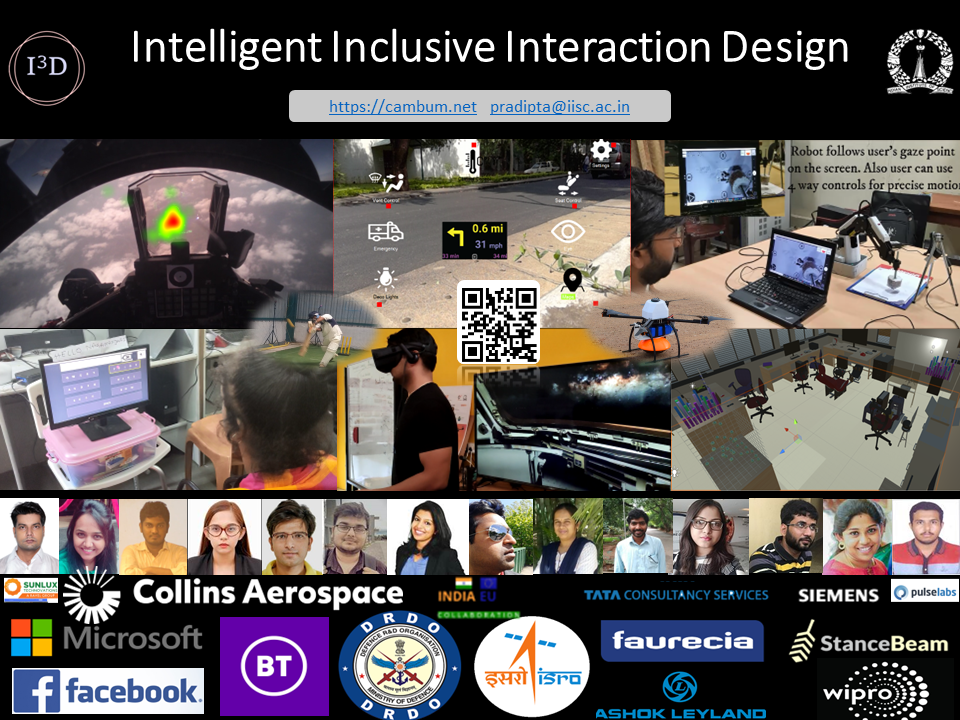 In India alongside his teaching duties, Pradipta has worked on a range of research projects. For instance, he collaborated with the aeronautical industry on optimising the design layout of cockpits, using virtual reality which allows people to change the visual settings to see how it affects the pilot’s response. He has also led a project to design a virtual reality cockpit for India’s maiden human space flight mission and this has co-authored an article on his work on a Comparison of On-Orbit Manual Attitude Control Methods for Non-Docking Spacecraft Through Virtual Reality Simulation. He is one of five researchers in India selected to undertake research study on human machine interaction at the International Space Station during the upcoming Axiom 4 mission.
In India alongside his teaching duties, Pradipta has worked on a range of research projects. For instance, he collaborated with the aeronautical industry on optimising the design layout of cockpits, using virtual reality which allows people to change the visual settings to see how it affects the pilot’s response. He has also led a project to design a virtual reality cockpit for India’s maiden human space flight mission and this has co-authored an article on his work on a Comparison of On-Orbit Manual Attitude Control Methods for Non-Docking Spacecraft Through Virtual Reality Simulation. He is one of five researchers in India selected to undertake research study on human machine interaction at the International Space Station during the upcoming Axiom 4 mission.
During Covid, he collaborated with BT on reducing energy consumption and room occupancy through creating digital twins. He also co-created an app that shows the rate of spread of Covid in different regions.
Since returning to India, Pradipta has won several awards: the Microsoft AI 4 Accessibility 2018 award, the Facebook Responsible Innovation in AR/VR award in 2020 and the Toycathon 2022 award for developing an eye gaze-controlled robot for the rehabilitation of children with severe speech and motor impairment. The BT digital twin project was in the top five finalists in the UK AI Innovation Awards in 2024.
In 2022 he was given tenure and is now Associate Professor at the Department of Design and Manufacturing and associate faculty at Robert Bosch Centre for Cyber Physical Systems at Indian Institute of Science, Bangalore.
He has since been working on a series of innovative programmes from the Inclusion Metaverse [for instance, working with Siemens on holoportation] leading the first of its kind toy hackathon to help children with severe disabilities to communicate through eye-controlled interfaces to his current work on assessing the impact of microgravity on astronauts’ wellbeing.
Pradipta says that throughout his work the Gates Cambridge network has been a vital source of inspiration and he is looking to join forces with fellow scholars on research work.








